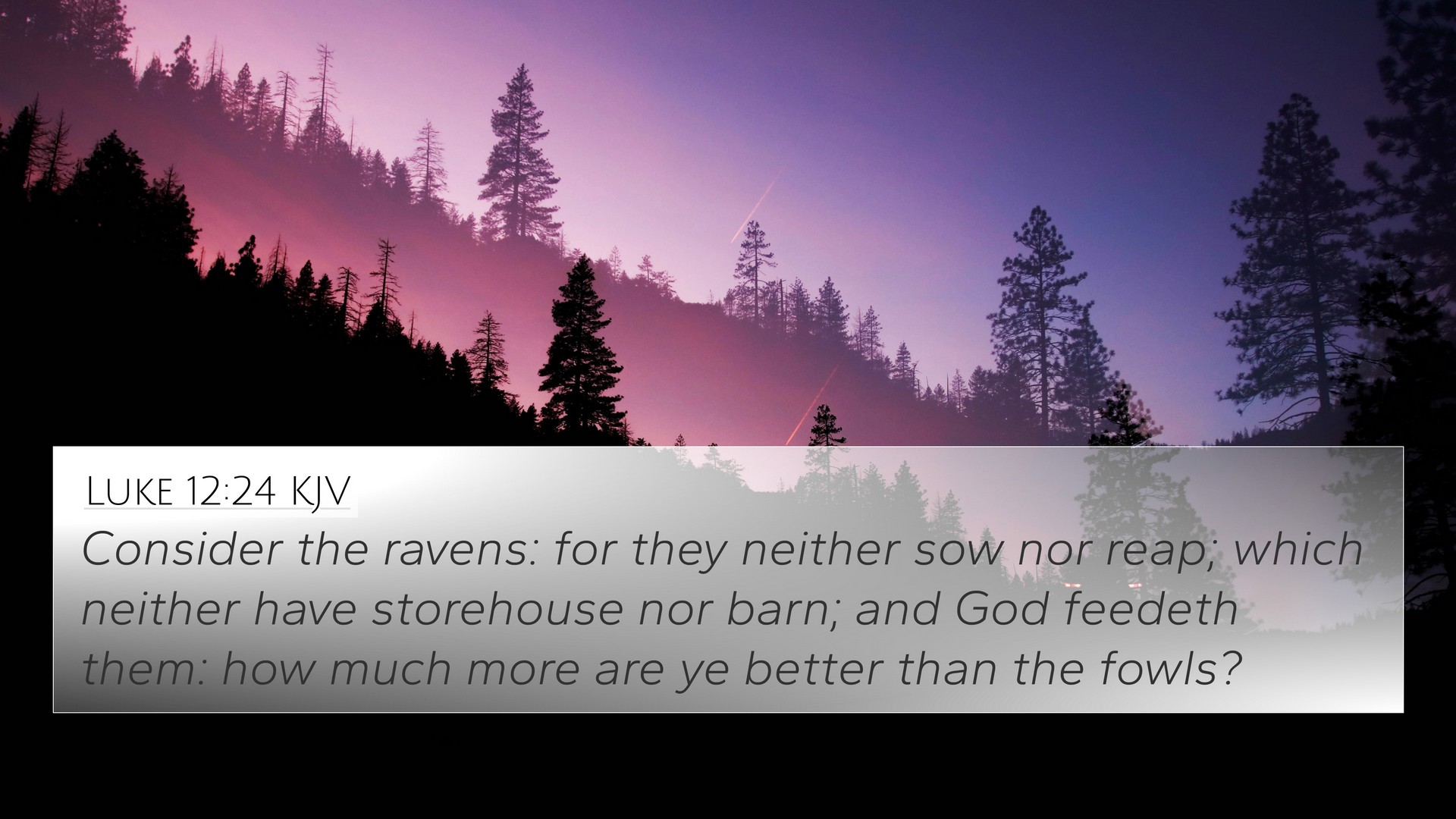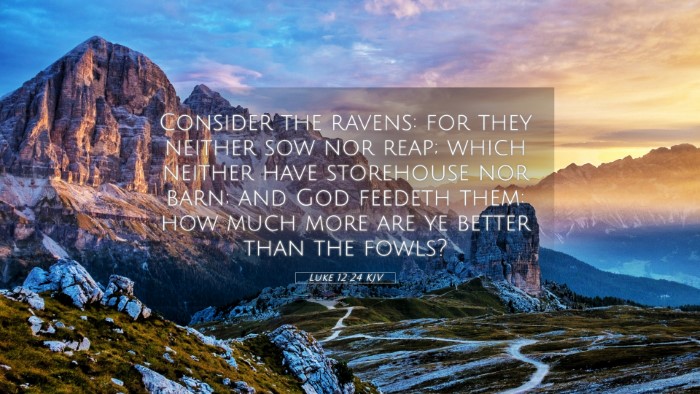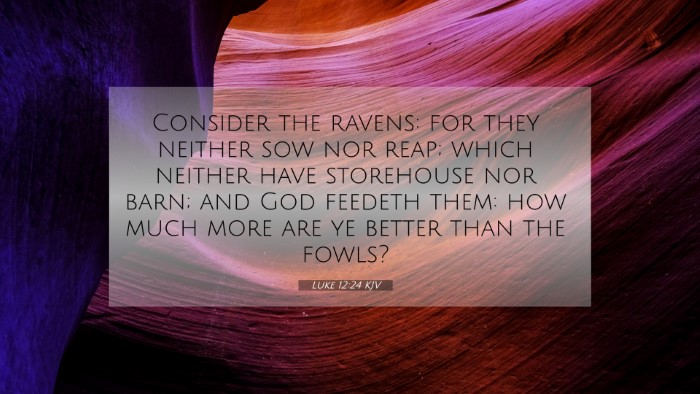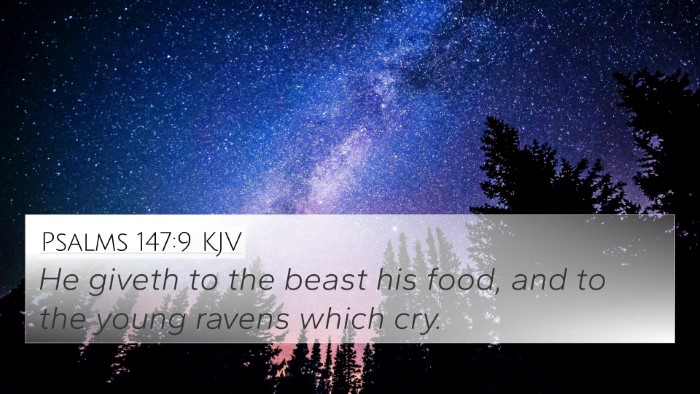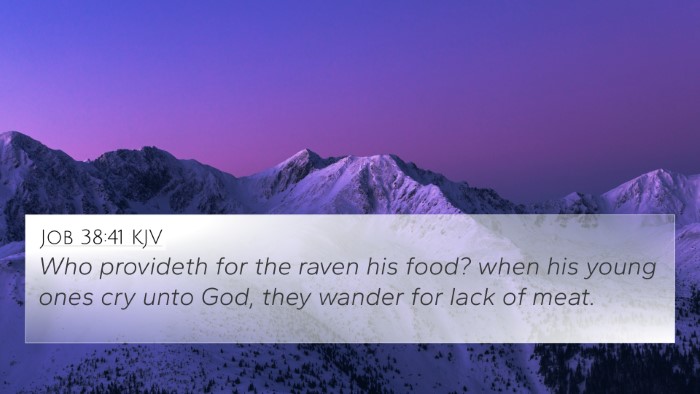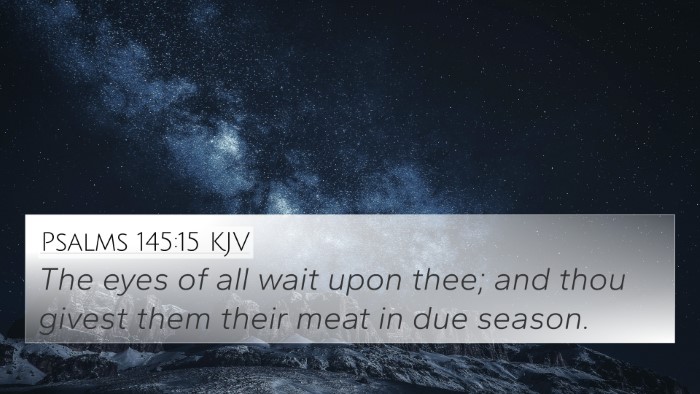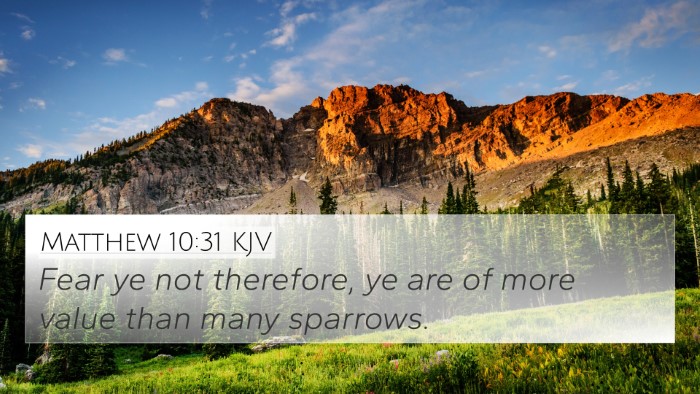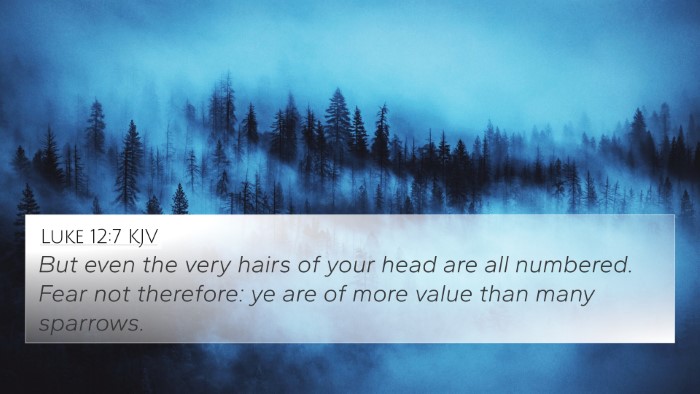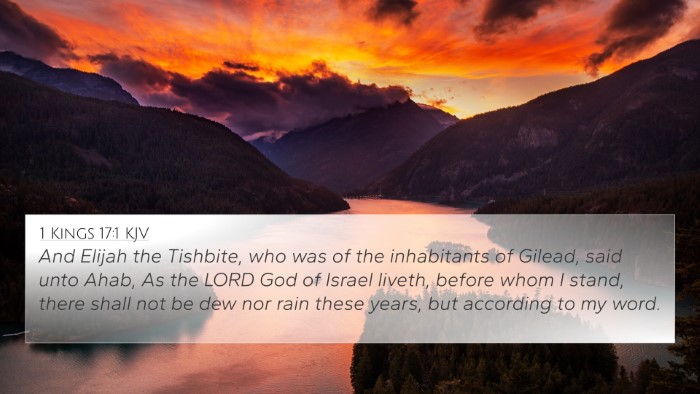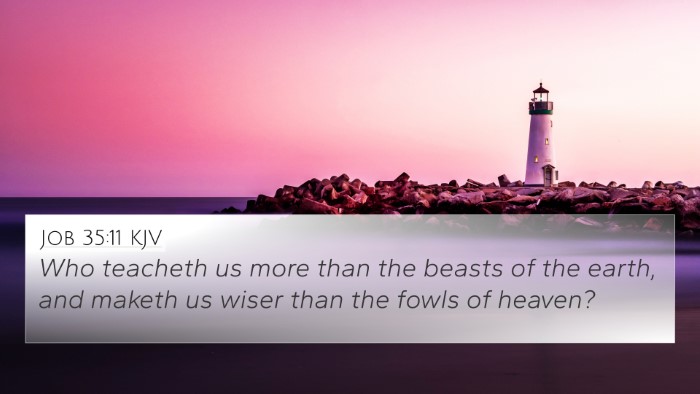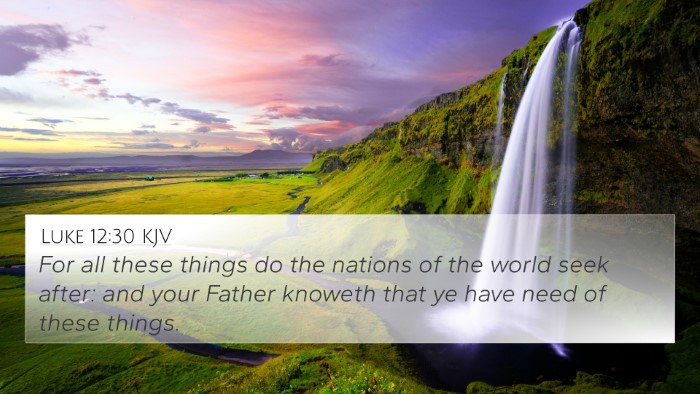Understanding Luke 12:24
Luke 12:24 states: "Consider the ravens: for they neither sow nor reap; which neither have storehouse nor barn; and God feedeth them: how much more are ye better than the fowls?" This verse presents a profound lesson on the providence of God and the inherent value of human beings in His creation.
Verse Meaning and Interpretation
The interpretation of this verse can be understood through several key themes identified in public domain commentaries. Below are summarized insights from notable biblical scholars.
1. God's Providence
According to Matthew Henry, this verse emphasizes God's provision for His creation. The ravens, despite their lack of cultivation or storage, are sustained by God's generosity. Henry argues that this is a reminder for believers to trust in God's care and provision, as He is attentive to even the needs of lesser creatures.
2. The Value of Human Beings
Albert Barnes focuses on the comparison made in this verse. He emphasizes that if God cares for the ravens, how much more will He care for humans, who are made in His image? This highlights the special place humans hold in God’s creation, suggesting that believers should not be anxious about their needs.
3. Encouragement Against Anxiety
Adam Clarke notes that the context of this verse serves as encouragement against anxiety over material needs. Clarke argues that just as the ravens do not farm or store, humans can rely on God’s provision without succumbing to worry about their daily living.
Cross-References to Luke 12:24
This verse resonates with various other scripture passages which underscore similar themes. Below is a list of cross-references that support and expand upon the concepts presented in Luke 12:24:
- Matthew 6:26 - "Behold the fowls of the air: for they sow not, neither do they reap, nor gather into barns; yet your heavenly Father feedeth them. Are ye not much better than they?"
- 1 Peter 5:7 - "Casting all your care upon him; for he careth for you."
- Philippians 4:19 - "But my God shall supply all your need according to his riches in glory by Christ Jesus."
- Psalm 104:27-28 - "These wait all upon thee; that thou mayest give them their meat in due season. That thou givest them they gather: thou openest thine hand, they are filled with good."
- Job 38:41 - "Who provideth for the raven his food? when his young ones cry unto God, they wander for lack of meat."
- Matthew 10:29-31 - "Are not two sparrows sold for a farthing? and one of them shall not fall on the ground without your Father. But the very hairs of your head are all numbered. Fear ye not therefore, ye are of more value than many sparrows."
- Luke 12:6-7 - "Are not five sparrows sold for two farthings, and not one of them is forgotten before God? But even the very hairs of your head are all numbered. Fear not therefore: ye are of more value than many sparrows."
Thematic Connections
In Luke 12:24, there are significant themes that interconnect with other verses, providing an enriching scriptural framework for understanding God's nature and care:
- Divine Care and Provision - The assurance that God cares for His creation, urging believers to relinquish worries and place their trust in Him.
- Human Worth - Highlighting the intrinsic value that humans possess compared to other creatures.
- Call to Faith - Encouraging a life of faith, where reliance on God is central to a believer's existence.
Broader Insights
The insights gleaned from Luke 12:24 can foster deeper understanding of other scriptural narratives, particularly in the realms of God's faithfulness to His people throughout both the Old and New Testament. This verse serves as a reminder of the continuous dialogue among various biblical texts regarding God’s provision:
Connecting Old and New Testament Themes
The principles articulated in this verse reflect a broader understanding of God's character. For instance:
- Old Testament: God's provision for Israel in the wilderness (Exodus 16 - manna from heaven).
- New Testament: Jesus’ teaching in the Sermon on the Mount (Matthew 6), which similarly discusses the theme of trust in God's provision.
Methods for Cross-Referencing
To study such connections effectively, various tools can aid in identifying themes across scriptures:
- Bible Concordance: A useful resource for locating verses based on keywords and themes.
- Bible Cross-Reference Guide: Allows for systematic studies and the identification of relational scriptures.
- Bible Chain References: Provides a method for tracing themes or stories throughout the Bible.
Conclusion
In sum, Luke 12:24 encapsulates a vital aspect of Christian faith: the call to trust in God’s provision and to recognize the value He places on human life. By examining the connections between this verse and others, believers can deepen their understanding of God's character and promises.
